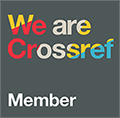Erken Dönemlerde Finansal Farkındalığın Gelişmesi ve Finansal Okuryazarlık Konularının Matematik Dersine Entegresi
DOI:
https://doi.org/10.33308/26674874.2022362402Anahtar Kelimeler:
Finansal Okuryazarlık Eğitimi- Matematik Eğitimi- Erken Çocukluk Dönemi- İlkokul- OrtaokulÖzet
Son yıllarda bireylerin bilinçli ve sorumlu finansal kararlar verebilmesi için finansal okuryazarlık eğitimi konusu gündeme gelmektedir. Teknolojik ve ekonomik gelişmelerin beraberinde getirdiği finansal ürün çeşitliliğini, karmaşıklığı ve derinliği finansal okuryazarlık eğitimi ihtiyacını artırmaktadır. Nitekim bireylerin finansal konularda doğru kararlar alabilmesi için bu konuda yeterli bilgi ve farkındalığa sahip olmaları gerekmektedir. Bu çalışmada öncelikle finansal okuryazarlık tanımı ve boyutlarına yer verilmiştir. Erken dönemlerde finansal farkındalığın nasıl geliştiği konusunda literatürden örnekler sunulmuştur. Finansal okuryazarlık konularının matematik eğitiminde hangi bakış açılarıyla ele alınabileceğinden söz edilmiştir. Matematik öğretme ve öğrenme ortamlarında finansal okuryazarlık ile ilgili yapılan çalışmalardan örnekler sunulmuştur. Finans Eğitimi Standartları Entegreli Matematik Modeli (FESEM modeli) önerilmiş, bu modelin programda nasıl yer alabileceği konusunda önerilerde bulunulmuştur. Son olarak, finansal konuların matematik eğitimine dahili konusundaki uygulamaların ve araştırmaların neler ve nasıl olabileceğine dair önerilerde bulunulmuştur.
İndirmeler
İndir
Yayınlanmış
Nasıl Atıf Yapılır
Sayı
Bölüm
Lisans
Telif Hakkı (c) 2022 Yaşadıkça Eğitim

Bu çalışma Creative Commons Attribution-NonCommercial-NoDerivatives 4.0 International License ile lisanslanmıştır.
Sisteme yüklemiş olunan makalenin kapsamı, sunduğu bulgular ve sonucu ve yorumları konusunda Yaşadıkça Eğitim [YE] dergisi Sahibi, Editör, Editör Yardımcısı, Hakemler ve Editör Kurulu'nun hiçbir sorumluluk taşımadığını kabul ederim.
Makalenin özgün olduğunu, herhangi bir başka dergiye yayımlanmak üzere gönderilmediği, daha önce yayımlanmadığını Yaşadıkça Eğitim [YE] dergisi Editörlüğü'ne beyan ederim.
Başlığı belirtilen makalenin, 5846 sayılı Fikir ve Sanat Eserleri Yasasının 22. maddesi gereğince çoğaltma, 23. maddesi gereğince yayma ve 25. maddesi gereğince her türlü taşıyıcı materyal üzerinde veya elektronik ortamda kamuya iletim haklarını Yaşadıkça Eğitim [YE] dergisine karşılıksız, koşulsuz ve süresiz olarak devredildiği, makale ile ilgili devredilen hakların dilediği zaman, mekan ve koşullarda kullanmaya Yaşadıkça Eğitim [YE] dergisinin yayıncısı olarak İstanbul Kültür Üniversitesi'nin yetkili kılınacağını onaylarım.





